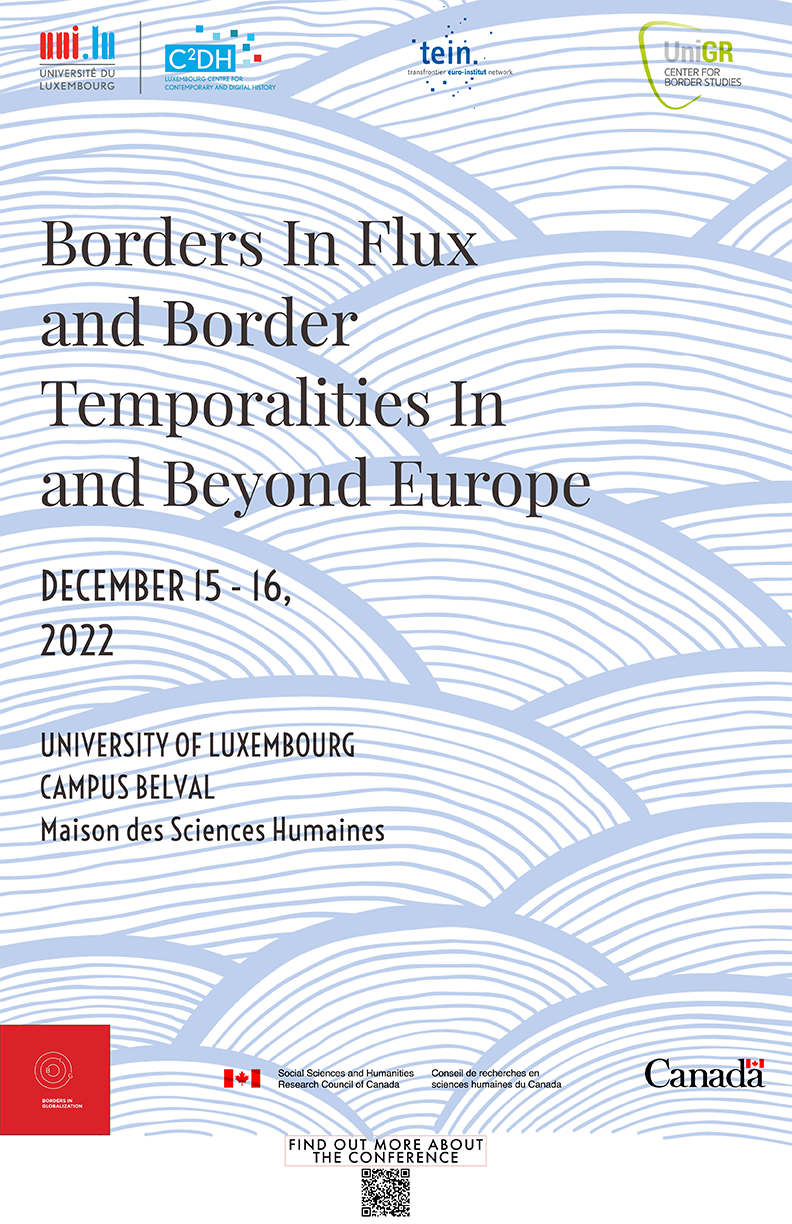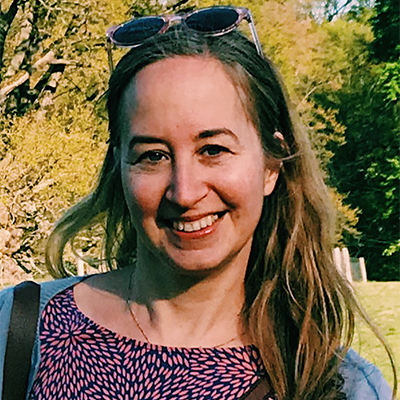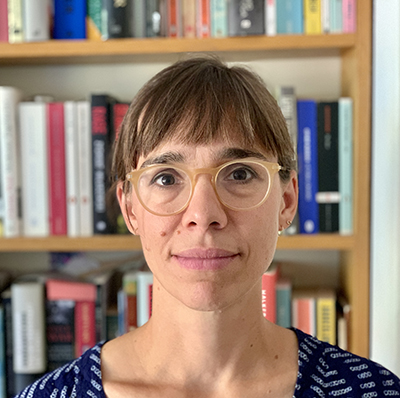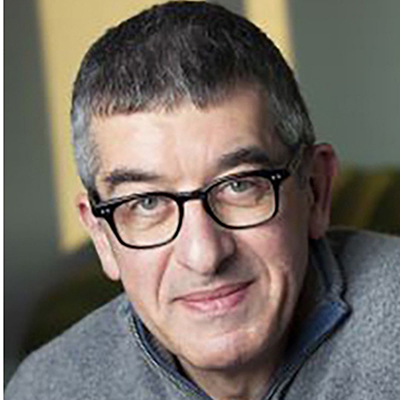Border studies is an interdisciplinary field of research in which existing scholarship has primarily been spatially oriented. The conference Borders In Flux and Border Temporalities In and Beyond Europe sheds light on research that focuses on the temporality of borders. The conference connects leading researchers as well as established and early-stage researchers to present, share and discuss their research on borders, borderlands, and border regions in and beyond 19th and 20th century Europe.
The conference invites scholars whose research sheds light on the temporal dimension of borders by exploring border practices, border discourses, and analyses of border regimes and life at the border in Europe. We include papers that focus on topics that are related to identity, historical memory, minorities, cross-border experiences, cross-border cooperation, and regionalism. With this conference, we also highlight methodological and conceptual considerations of researching borders in and through time and space.
The conference is organised in a hybrid format by the Luxembourg Centre for Contemporary and Digital History (C²DH) and the Transfrontier Euro-Institut Network (TEIN) in collaboration with the Borders in Globalization (BiG), the UniGr Center for Border Studies and the Social Sciences and Humanities Research Council of Canada.
The organisation and structure of the conference also profited from the collaboration with the interregional working group ‘Border Temporalities’ within the UniGR-Center for Border Studies. The working group has been established to shed light on the temporal and historical dimension of Border Studies and includes researchers from UniGR-CBS-partner universities. For more information on the working group and ongoing projects, please visit the website.
15-16 December 2022
Black Box, Maison des Sciences humaines
11, Porte des Sciences
L-4366 Esch-sur-Alzette
and online
Please register if you want to participate in-person or online.

Keynote speakers:
Carolin Leutloff-Grandits
Title of Keynote: Of being stuck or moving on: border temporalities along the EU's external border in the Western Balkans

Carolin Leutloff-Grandits, PD Dr. phil., is a social anthropologist and works as a senior researcher at the interdisciplinary Viadrina Center B/ORDERS IN MOTION at the European University Viadrina. Her research interests include migration, borders, temporality, social security, and family. She is particularly concerned with the countries of the former Yugoslavia and with Germany. Selected publications: “We are not Just the Border of Croatia; This is the Border of the European Union… ” The Croatian Borderland as “Double Periphery”, Journal of Borderlands Studies (2022), DOI: 10.1080/08865655.2022.2104340. Temporalities of Refugee Experience in Germany. Diversification of Asylum Rights and Proliferation of Internal Boundaries. Archivio Antropologico Mediterraneo (2019), https://doi.org/10.4000/aam.2432. Migrating Borders and Moving Times. Temporality and the Crossing of Borders in Europe. Edited together with Madeleine Hurd and Hastings Donnan, 2017: Manchester: Manchester University Press.
Alena Pfoser
Title of Keynote: Remembering as bordering: Using memory studies to understand border temporalities

Dr Alena Pfoser is Senior Lecturer in Communication and Media Studies at Loughborough University, UK. Her main areas of expertise include memory in contested settings, heritage and tourism industries, borders and borderlands, and qualitative and arts-based methods. For her doctoral and postdoctoral projects, she conducted research on the Russian-Estonian borderland, exploring the interrelations and tensions between official and vernacular memories in two border towns as well as questions of spatial peripheralisation. This has resulted in several journal publications including on contestations over security and mobility, symbolic bordering processes and a conceptual article on memory and everyday borderwork. Her current project “Tourism as Memory-Making” (PI, 2019-2022), funded by a UK ESRC New Investigator Grant, examines Russian tourism to post-Soviet cities.
Alena's twitter handle is @alenapfoser
Emmanuel Brunet-Jailly

Emmanuel Brunet-Jailly is a Professor of Public Administration, and the director of Borders in Globalization (BiG) and 21st century borders research projects at the University of Victoria, Canada. His research interests are comparative border and migration studies, policy governance as well as policy relevant research. He has published over 100 articles and book sections, and 12 books/sections of academic journals. A list of selected publications can be found on his university profile.
Programme
Thursday, 15 December
| 09.00 |
Arrival and small breakfast |
| 09.30 |
Welcome |
| 09.45 |
Keynote: Of being stuck or moving on: border temporalities along the EU's external border in the Western Balkans Carolin Leutloff-Grandits, European University Viadrina |
| Chair: Birte Wassenberg, University of Strasbourg and TEIN (Transfrontier Euro-Institut Network) |
|
| 10.30 |
Coffee break |
| 10.45 |
Panel 1: Borders and the Elasticity of Time |
| Chair: Birte Wassenberg, University of Strasbourg and TEIN (Transfrontier Euro-Institut Network) |
|
| Discussant: David Newman, Ben-Gurion University in the Negev in Israel |
|
| War Borders: Spatial and Temporal Impact of the Shifting Border between Ukraine and its Russia-Occupied Territories Lidia Kuzemska, Forum Transregionale Studien, Berlin |
|
| Portuguese Border and it’s ‘micro-temporalities’: advances, retreats, and hesitations in the exercise of control Mafalda Carapeto, University of Lisbon |
|
| The timeless island. The impact of EU and national legislation and procedures on refugees’ temporalities in Lesvos Luca Daminelli, University of Genoa, (and Marcella Cometti, University of Ferrara) |
|
| 12.30 |
Lunch Break and Poster Session of Doctoral Researchers Energy Borderlands in Flux: the Example of the SaarLorLux Region Borders in Northern Quebec’s “Wilderness”. From Colonial Dividing Lines to Postcolonial Links Fun Fairs in Border Areas – A National, Transregional and Transnational History of the “Schueberfouer” A transregional community of faith? Luxembourgish Catholicism in the second half of the 19th Century |
| 14.00 |
Panel 2: Border-Making Processes: Changes over Time |
| Chair: Christoph Brüll, Luxembourg Centre for Contemporary and Digital History, University of Luxembourg |
|
| Discussant: Birte Wassenberg, University of Strasbourg and TEIN (Transfrontier Euro-Institut Network) |
|
| Border Temporalities at the French-German Border (1871–1914). A Laboratory for Experimenting with Border Regimes Benoit Vaillot, University of Toulouse, and associate researcher at University of Strasbourg |
|
| Borders and Border Spaces in the South Caucasus: From the Second Half of the 19th Century up to the 1920s Arpine Maniero, Collegium Carolinum e.V., Research Institute for the History of the Czech Lands and Slovakia |
|
| (B)order-making, cross border transactions, and environment at the Russian-Finnish Border (early twentieth – early twenty first century) Oksana Ermolaeva, Institute of Advanced Studies, New College Europe, Bucharest and Global Digital Fellow, Council for European Studies, Columbia University (2020–2021) |
|
| (De)bordered Childhood Projects in flux. Borders, time, and the childcare arrangements of cross-border commuting parents Sabine Bollig, University of Trier & Selina Behnke, University of Trier |
|
| 16.00 |
Coffee break |
| 16.30 |
Keynote: Remembering as bordering: Using memory studies to understand border temporalities Alena Pfoser, Loughborough University, United Kingdom |
| Chair: Machteld Venken, Luxembourg Centre for Contemporary and Digital History, University of Luxembourg |
|
| 17.15 |
Panel 3: Remembering as Bordering |
| Chair: Machteld Venken, Luxembourg Centre for Contemporary and Digital History, University of Luxembourg |
|
| Discussant: Alena Pfoser, Loughborough University, United Kingdom |
|
| Revisiting Ballybogoin – lines, traces and tidemarks in the Irish borderlands Dorte Jagetic Andersen, Centre for Border Region Studies at the University of Southern Denmark |
|
| Borders in Time and Space: At What Stage do Borders become Sacrosanct? David Newman, Ben-Gurion University in the Negev in Israel |
|
| Bordering Iberia, globalizing borders: topics for the enhancement of a transnational heritage Pedro Albuquerque, University of Seville, Uniarq and Centre of Global Studies, Aberta University (and Francisco José García Fernández, University of Seville) |
|
| 18.45 |
Closing of day one |
| 19.30 | Dinner for participants |
Friday, 16 December
| 09.00 |
Arrival and small breakfast |
| 09.30 |
Keynote: Migration, Borders and Temporality Emmanuel Brunet-Jailly, University of Victoria, Canada and Borders in Globalization |
| Chair: Anne Thevenet, TEIN (Transfrontier Euro-Institut Network) |
|
| 10.15 |
Coffee break |
| 10.45 |
Panel 4: Approaches to Border Temporalities |
| Chair: Christian Wille, University of Luxembourg and UniGR-Center for Border Studies |
|
| Discussant: Carolin Leutloff-Grandits, European University Viadrina |
|
| Border crossing and “temporal otherness” in the Greater Region SaarLorLux. Residential migrants’ experiences of divergence Elisabeth Boesen, University of Luxembourg |
|
| The Making of the No Man’s Land. Forced migration, border violence and spatial statelessness in East-Central Europe at the end of the 1930s Michal Frankl, Masaryk Institute and Archives of the Czech Academy of Sciences |
|
| Arrival Declaration Forms. A New Gateway for Mapping Migration to Luxembourg Machteld Venken, Luxembourg Centre for Contemporary and Digital History, University of Luxembourg (and Arnaud Sauer, Luxembourg Centre for Contemporary and Digital History, University of Luxembourg) |
|
| 12.30 |
Closing words |
| 12.45 | End of conference |




